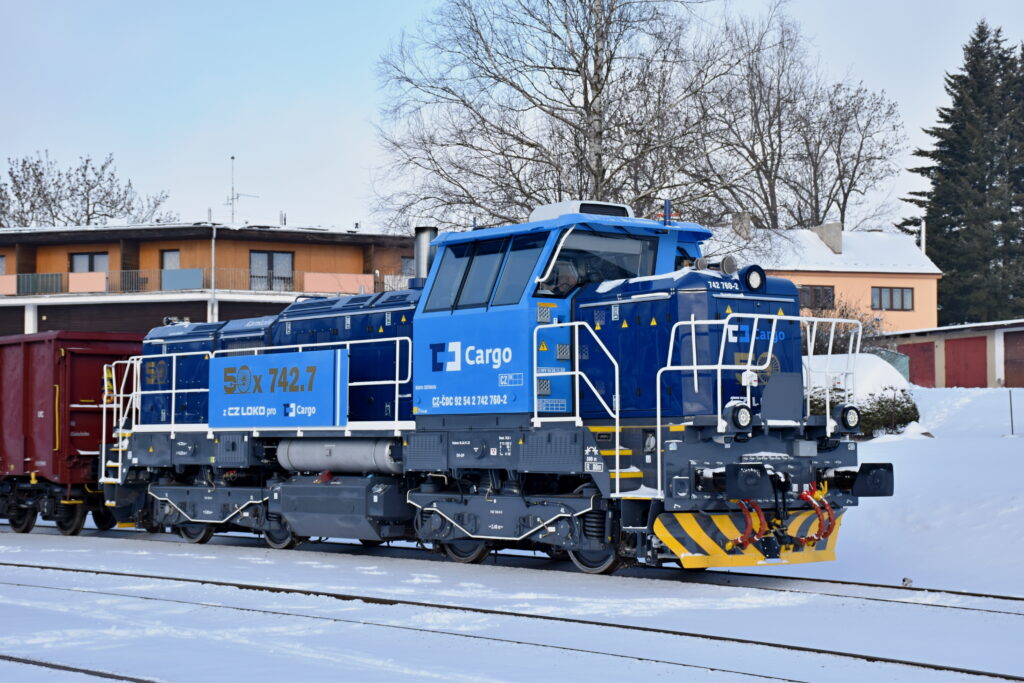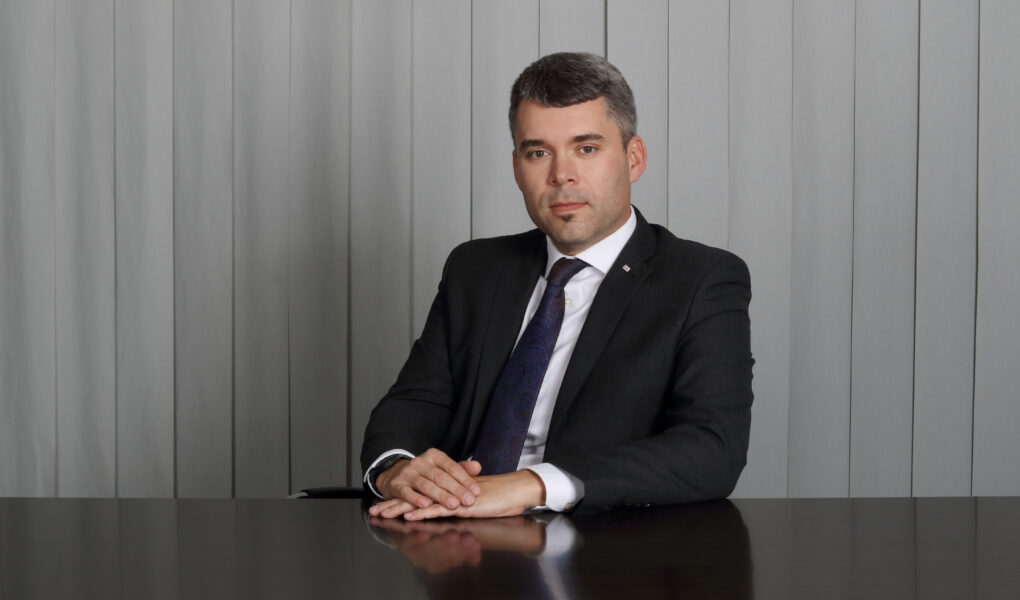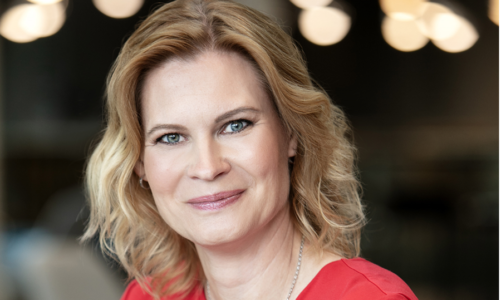Tomáš Tóth, a graduate of transport engineering at the University of Pardubice, remains faithful to transport in his professional life within the ČD Cargo Group. He was a member of the team preparing the spin-off of freight transport from Czech Railways. Since the end of 2020, he has been the Chairman of the Board of Directors of ČD Cargo, a.s.
You are a rail freight carrier with a rich tradition. What are your priorities in Central Europe?
For many years now, ČD Cargo’s operations have not been limited to the territory of the Czech Republic, but we have become an increasingly important player in the Central European rail freight transport market. Today, the ČD Cargo Group operates in seven European countries, which enables us to extend our transport arms and provide our customers with comprehensive services. The trains of ČD Cargo or its subsidiaries can be encountered in all neighbouring countries and in Hungary. In Croatia, we expect to start transports on our own licence at the turn of 2023/2024 – we already hold a licence. Our strategy, or priority if you like, is to establish the ČD Cargo brand in all transport markets in Europe so that we can meet the needs of our customers.
An example of successful operations in foreign markets is our Austrian branch. It was activated in mid-January 2019 and has already transported 350,000 tonnes in its first year of activity. In 2022, this figure rose to 1.9 million tonnes, and according to official statistics from the Austrian authorities, ČD Cargo’s market share rose from 1.7% in 2021 to 3% in 2022. Today, we are the sixth largest carrier in Austria and can boast having references from the transport of timber, automotive, agricultural, and chemical products or road trailers. Similarly, we operate through a branch in Germany, again in automotive commodities and also there in vans and chemicals. We have been active for the longest time in Poland, where we are increasing our transport volumes every year and currently transport approximately 4 million tonnes of goods. In Slovakia, we are number four, and Hungary is also highly significant for us. Many transports are carried out in synergy with the “parent” ČD Cargo. We support our subsidiaries and branches with, among other things, a rolling stock fleet.
Innovation and the greening of transport is a competitive necessity today. Can you explain your vision for alternative propulsion on the rail?
ČD Cargo ranks among socially responsible companies, so ecology, low-emission, and emission-free vehicles have naturally been of interest to us for a long time. Our concept of sustainability and the development of the rolling stock fleet for the medium term thus envisages the gradual phasing out of locomotives with internal combustion engines. However, in terms of implementing suitable innovative novelties in the form of alternative drives, we must, naturally, proceed primarily according to what the market offers and under what conditions.
Currently, the preferred option is dual, i.e. dual-source locomotives with a combination of an electric drive and a diesel engine. Although this is not an altogether “emission-free” type of vehicle, the benefits in terms of reduced emissions and energy are undeniable. The operational use of these vehicles is planned mainly for long-distance freight trains, first and last mile trains, the servicing tracks without trolley wires, and sidings. The interest in this area is also confirmed by the demand published by ČD Cargo in the first quarter of this year. In the future, the hybrid vehicle variant, i.e. a combination of an electric and battery drive, seems to be suitable. However, at the moment, the market does not offer a suitable product applicable in the ČD Cargo environment or in rail freight transport. For the time being, the situation is identical in the field of hydrogen propulsion. The new technologies do not yet make it possible to provide adequate traction power for heavy freight trains.
Despite the above, I would like to emphasise that thanks to electric traction, the rail is already essentially emission-free, i.e. environmentally friendly, and, at the same time, many times more efficient, or if you prefer, more economical in terms of energy consumption, compared to other modes of land transport. More than 92% of our company’s performance is carried out by electric traction. In the future, it will be more about gradually reducing dependence on fossil fuels within the energy mix of the Czech Republic or Europe.

Customers often require just-in-time delivery. Are you able to compete with trucks?
The just-in-time mode is no longer the privilege of trucks. Containers have a fixed shipping date, only precise windows can be used to load fuel at terminals, and, after all, coal must be delivered to a heating plant or power station on time. Just to explain, and now back to the question. The volume of goods transported has been increasing for a long time thanks to globalisation and, unfortunately, most of these goods do not end up on the railway. Yet, we will need it more than we do today in our quest for zero-emission transport. Therefore, let us be smart and invest in modal shifts, in the cooperation of both, in the future, emission-free modes of transportation to avoid the need to build large-scale energy resources. A future where rail and road do not compete but cooperate. Yes, the just-in-time mode is significant from this perspective and will be increasingly so in our railway people’s “vocabulary”. From the standpoint of transformation in transport, we have to talk about costs, schedules and other aspects. But first of all, we have to start. We could, for example, use the modernisation fund, which is “funded by emission allowances”, to transform individual sectors.

2022 was one of the most difficult years for ČD Cargo in its history. What measures have you taken in the area of corporate governance?
Last year was very complicated for ČD Cargo, but I must say that our results are very good compared to other European carriers of a similar size. Therefore, in order to achieve them, we had to accept a number of measures. First of all, in the wake of the unprecedented rise in costs, we had to make two adjustments to the actual prices. I am glad that most of our business partners accepted the arguments for the increase and did not let us down. We also had to react to the changes caused by the war in Ukraine. I can name, for example, the changes in commodity flows, which meant for us, among other things, searching for new transport routes, transhipment capacities or technologies. One example is securing grain exports from Ukraine, for which we did everything possible to make it a success. The vast interest in brown coal transport necessitated other measures. Customers who have switched to gas or biomass heating have also contacted us with requests to transport it. We had to change our repair priorities, reinforce our Ústí nad Labem operating unit staff, etc.
Thank you for the interview.




